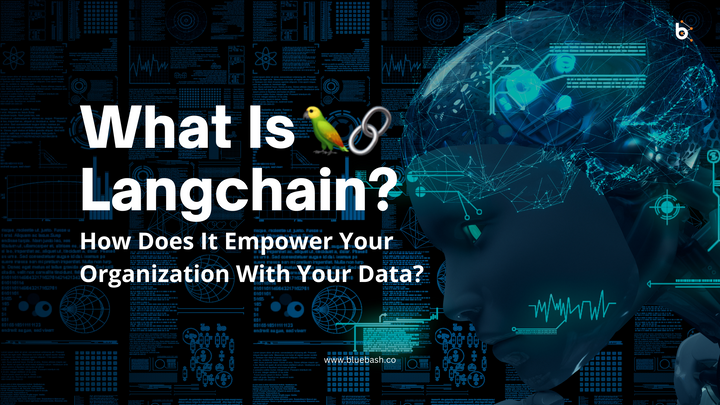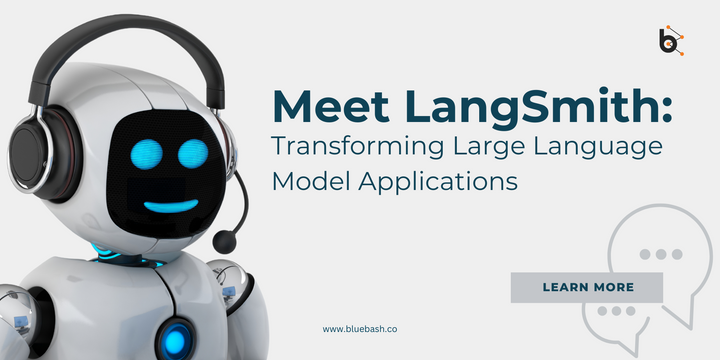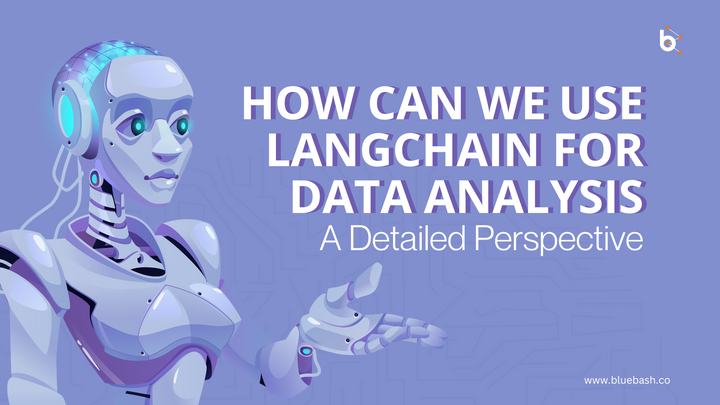Ethical AI: Why It’s No Longer an Option for Businesses

In a world where Artificial Intelligence (AI) is transforming industries at lightning speed, conversations around innovation and efficiency often dominate the boardroom. However, there’s another equally critical narrative gaining traction: AI ethics in business. Gone are the days when ethical concerns could be pushed aside in favor of short-term gains. Today, Ethical AI development is not just a noble goal — it's a non-negotiable imperative for businesses aiming to sustain trust, ensure compliance, and secure long-term growth.
Let’s explore why integrating ethical considerations into AI initiatives has moved from optional to essential, what the ethical implications of AI really look like, and how businesses can pivot toward human-centric AI practices without stifling innovation.
The Rising Need for Ethical AI in Business
The promise of AI is immense. The system uses AI technology to generate personalized recommendations while predicting market behavior and implementing automated workflows in addition to clinical diagnosis applications. The same capabilities of AI entail equally difficult problems when systems make critical choices affecting human life or finances or possibilities for opportunities.
Business operations that use AI systems have accidentally deployed bias into their systems which causes discrimination and privacy breaches and also creates insufficient organizational accountability. The ethical implications of AI become apparent through these events which underline why organizations must incorporate ethical considerations during each stage of AI development.
In other words, the question is no longer can we build it? — but should we, and how do we do it responsibly?
Why Ethical AI is Non-Negotiable ?
- Trust as a Competitive Edge
The digital revolution requires trust which acts as a valuable asset. Business clients together with consumers expect all organizations they deal with to provide truthful information and fair treatment. An AI-driven system that mismanages data or shows bias or lacks accountability will damage your reputation to an extent that might never recover.
Companies demonstrate their dedication towards ethical development practices through their commitment to integrity above all other considerations. A firm dedication delivers a valuable competitive edge to organizations. - Evolving Regulatory Landscape
International authorities have initiated procedures to guarantee responsible AI applications. The EU’s AI Act together with American AI rules for businesses along with developing standards serve as frameworks to establish disclosure requirements and methods for de-biasing systems and achieve auditing capabilities. The non-compliance of regulatory standards by companies can result in several consequences which range from financial penalties to product bans along with possible legal repercussions.
Businesses that regulate their AI strategies based on existing patterns will minimize disruptions when scaling their operations. - Avoiding Legal and Financial Fallout
The number of unethical AI-related legal actions and probes continues to rise because of discriminatory recruitment technology and data security breaches in AI-powered mobile applications. The consequences of unethical behavior in business lead to legal challenges, media criticism and decreased customer base while investors show decreased confidence in the company.
Integrating ethical considerations of AI upfront acts as a safety net. It mitigates reputational and financial risks while allowing innovation to thrive in a secure framework.
Core Pillars of Ethical AI Development
To implement ethical use of AI, businesses must address several core considerations:
- Bias and Fairness
The learning process of AI systems depends on historical data while AI systems will reproduce any biased patterns that exist in the data. An AI system used for resume screening develops its data selection criteria from previous discriminatory hiring practices. Such systems without proper oversight continue to replicate discrimination through their large-scale applications.
The model training process requires developers to work with inclusive data that contains a wide range of demographics and subsequent testing must verify fairness standards across gender, ethnicity and socioeconomic categories. - Transparency and Explainability
The “black box” problem has become one of the most recognized ethical issues arising from AI because AI systems make decisions which experts cannot explain. Such obscure processes present substantial ethical issues when applied to essential purposes such as finance and healthcare and criminal justice.
Ethical AI demands transparency. Businesses should invest in explainable AI systems that allow stakeholders to understand how decisions are made and what data was used. - Privacy and Consent
The success of AI systems depends on data input but the origin of that data together with its handling practices becomes a crucial matter of great importance. The collection of personal data violates privacy rights when performed without consent and when used for purposes outside its original intended applications.
AI ethical standards in business operations require the establishment of protocols which minimize data while ensuring anonymity and explicitly gaining user permission. Security measures need to become integral parts of design from the start rather than be added later. - Human Oversight and Accountability
One of the most pressing ethical implications of AI is accountability. Who is responsible when AI gets it wrong?
Human-centric AI ensures that people remain in control of critical decisions. AI should augment, not replace, human judgment — especially in sensitive domains. Responsibility must be clearly defined and traceable.
The Human-Centric AI Approach
Ethical AI goes hand-in-hand with a human-first mindset. This approach prioritizes well-being, inclusivity, and empowerment, ensuring technology serves humanity — not the other way around.
Human-centric AI means:
- Designing AI that supports human capabilities
- Ensuring equitable access to AI systems and services
- Preventing automation from causing social harm or job displacement
- Designing interfaces that are inclusive for all users
As businesses develop AI systems for internal operations and external users, keeping people at the center leads to better adoption, stronger relationships, and more sustainable outcomes.
Ethical AI Agent Development with Bluebash
Building AI systems that are powerful, ethical, and scalable is no easy task. That’s why companies are turning to expert partners like Bluebash, a trusted ethical AI agent development company, to help them navigate this complex landscape.
Bluebash specializes in end-to-end AI agent development, including:
- Natural Language Processing (NLP) agents
- Intelligent workflow assistants
- Predictive analytics tools
- AI-powered decision support systems
What sets Bluebash apart is its deep commitment to ethical principles at every stage of development. When you partner with Bluebash, your AI systems are:
- Fair and unbiased, designed with inclusive datasets and fairness audits
- Compliant with global regulations, including GDPR, the AI Act, and industry-specific guidelines
- Transparent and explainable, with mechanisms to trace and justify AI decisions
- Secure and privacy-preserving, using encrypted, consent-driven data pipelines
- Monitored continuously, with post-deployment tools for ethical alignment and performance tracking
Partnering with Bluebash doesn’t just accelerate your AI journey — it ensures that your business builds AI that’s ethical, future-ready, and trusted by your users.

Practical Steps Toward Ethical AI Adoption
Whether you're just starting or already using AI, here are some actionable ways to integrate ethical principles into your development process:
- Establish an AI Ethics Policy
Your organization must arrange values and commitments for how it incorporates AI systems. The document should define ethical standards with clear guidelines about fairness together with transparency and accountability. The document functions as an oversight framework that supports each AI business initiative. - Create a Cross-Functional Ethics Committee
Include data scientists, legal advisors, product managers, and ethicists in one team. Their collective perspective ensures AI systems meet both technical and societal expectations. - Use Bias and Fairness Testing Tools
Leverage tools that scan your models and datasets for bias. Regularly retrain and reassess models to ensure fairness is maintained over time. - Educate Teams on Ethical Practices
Offer training programs to keep employees informed about ethical use of AI and evolving AI regulations for business. Awareness leads to proactive, responsible behavior. - Engage with the AI Community
Join open-source projects, AI ethics forums, and industry groups to stay updated on emerging standards, tools, and challenges. Ethical AI is a shared responsibility.
Conclusion: The Future Belongs to Ethical Innovators
AI is no longer a futuristic concept — it’s a reality shaping how we live, work, and interact. But with great power comes even greater responsibility. Businesses that ignore AI ethics risk more than bad PR — they risk legal action, customer backlash, and technological irrelevance.
To stay competitive and credible, companies must treat ethical AI development as a strategic priority, not an optional add-on. Partnering with a company like Bluebash, which brings both technical expertise and a strong ethical foundation, is the smartest move for businesses aiming to build trustworthy, impactful AI.
Because in the future of AI, it’s not just about what your systems can do — it’s about what they should do.
FAQ's
- Why is ethical AI important in business today?
Ethical AI builds trust, ensures fairness, and helps businesses avoid legal and reputational risks while aligning with growing regulations. - What are the key ethical considerations of AI?
Key considerations include bias mitigation, transparency, data privacy, accountability, and human oversight. - How can businesses start implementing ethical AI?
They should create an AI ethics policy, use fairness tools, train teams, and partner with ethical AI experts like Bluebash. - What is human-centric AI?
Human-centric AI prioritizes people’s rights, well-being, and inclusivity while ensuring humans remain in control of decisions. - Why choose Bluebash for ethical AI agent development?
Bluebash ensures fair, transparent, and regulation-compliant AI solutions tailored to your business needs.



